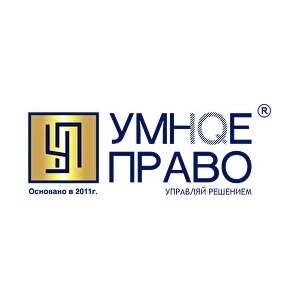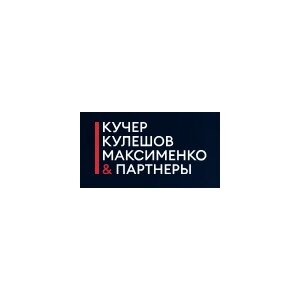Best Banking & Finance Lawyers in Russia
Share your needs with us, get contacted by law firms.
Free. Takes 2 min.
Or refine your search by selecting a city:
List of the best lawyers in Russia
About Banking & Finance Law in Russia
Banking and Finance law in Russia encompasses a variety of regulations and legal frameworks governing how financial institutions operate, the relationship between lenders and borrowers, and the issuance and trading of financial instruments. The sector is heavily regulated by the government to ensure stability, transparency, and fairness. Key regulatory bodies include the Central Bank of Russia and the Federal Financial Markets Service, which oversee the implementation of laws and standards in the financial industry. Russian financial law interacts with international financial standards, aiming to harmonize its practices with global norms.
Why You May Need a Lawyer
There are numerous situations in which individuals or businesses may require legal assistance in the field of banking and finance in Russia:
- Loan Agreements: Whether you're borrowing or lending money, a clear understanding of the terms and conditions of loan agreements is essential.
- Investment Management: Navigating the complexities of investment opportunities in compliance with Russian laws.
- Regulatory Compliance: Ensuring that your business adheres to financial regulations to avoid penalties and legal issues.
- Dispute Resolution: Legal support in resolving disputes between financial institutions and clients or other parties.
- Bankruptcy Proceedings: Guidance and representation through the process of bankruptcy or restructuring.
Local Laws Overview
Several key aspects of Russian law are critically important for the Banking & Finance sector:
- Civil Code: Section IV of the Russian Civil Code addresses financial services, including banking, loans, and deposits.
- Banking Law: The Federal Law on Banks and Banking Activity regulates how banks operate, the services they provide, and their reporting obligations to the Central Bank.
- Securities Market Law: This regulates the issuance and trading of securities, market conduct, and investor protection.
- Anti-Money Laundering (AML) and Counter-Terrorism Financing (CTF): Laws targeting financial crimes require thorough compliance from financial institutions.
- Data Protection: Laws governing the handling of personal data, including that of clients, are vital to ensure privacy and compliance with global standards.
Frequently Asked Questions
What are the main regulatory bodies for banking in Russia?
The Central Bank of Russia is the primary regulatory body that oversees the banking sector. Other crucial bodies include the Ministry of Finance and the Federal Financial Markets Service.
Can foreign banks operate in Russia?
Yes, foreign banks can operate in Russia but are subject to specific regulations regarding licensing and branch operations.
What is the legal interest rate for loans in Russia?
The interest rate is typically determined by the Central Bank, but individual loan contracts can have different rates subject to mutual agreement between the parties.
How is bankruptcy handled in Russia?
Bankruptcy proceedings in Russia are governed by the Federal Law on Insolvency (Bankruptcy), which provides the legal framework for both corporate and individual bankruptcy procedures.
Are cryptocurrencies regulated in Russia?
Yes, cryptocurrencies are regulated under the Digital Financial Assets Law, which establishes guidelines for issuing and circulating digital assets.
What consumer protections exist for banking customers?
Consumers are protected by various laws, including regulations on fair treatment, transparent terms, and complaint mechanisms overseen by the Central Bank.
Do I need a license to provide financial advisory services?
Yes, financial advisors typically need a license issued by the relevant regulatory body to offer services legally.
How does Russia handle international money transfers?
International money transfers are subject to exchange control regulations, and can often be facilitated through licensed banks and financial institutions.
What are some recent changes in Russian banking laws?
Recent changes focus on enhancing financial stability, such as stronger AML regulations and increased scrutiny on beneficial ownership disclosures.
What is the role of the Central Bank in currency control?
The Central Bank is responsible for implementing currency control measures that regulate and monitor foreign exchange transactions.
Additional Resources
- Central Bank of Russia: The main authority for financial regulation in Russia.
- Federal Financial Markets Service: Governs securities markets and investment services.
- Ministry of Finance of the Russian Federation: Provides financial policy guidelines and oversight.
- International Financial Centre (IFC): A project to develop Moscow as a global financial hub, providing relevant resources and support.
Next Steps
If you need legal assistance in Banking & Finance in Russia, consider the following steps:
- Identify Your Needs: Clearly define the legal issue you are facing or the guidance you require.
- Research Local Experts: Look for lawyers or law firms that specialize in financial law with experience in your specific issue.
- Consult with a Professional: Arrange consultations with potential legal advisers to discuss your situation and obtain advice.
- Understand Fees: Ensure you understand the fee structures and agree on costs before proceeding with legal services.
- Gather Documentation: Prepare and organize any documents or information that might be required for your case or inquiry.
Lawzana helps you find the best lawyers and law firms in Russia through a curated and pre-screened list of qualified legal professionals. Our platform offers rankings and detailed profiles of attorneys and law firms, allowing you to compare based on practice areas, including Banking & Finance, experience, and client feedback.
Each profile includes a description of the firm's areas of practice, client reviews, team members and partners, year of establishment, spoken languages, office locations, contact information, social media presence, and any published articles or resources. Most firms on our platform speak English and are experienced in both local and international legal matters.
Get a quote from top-rated law firms in Russia — quickly, securely, and without unnecessary hassle.
Disclaimer:
The information provided on this page is for general informational purposes only and does not constitute legal advice. While we strive to ensure the accuracy and relevance of the content, legal information may change over time, and interpretations of the law can vary. You should always consult with a qualified legal professional for advice specific to your situation.
We disclaim all liability for actions taken or not taken based on the content of this page. If you believe any information is incorrect or outdated, please contact us, and we will review and update it where appropriate.
Browse banking & finance law firms by service in Russia
Russia Attorneys in related practice areas.
Browse banking & finance law firms by city in Russia
Refine your search by selecting a city.
















